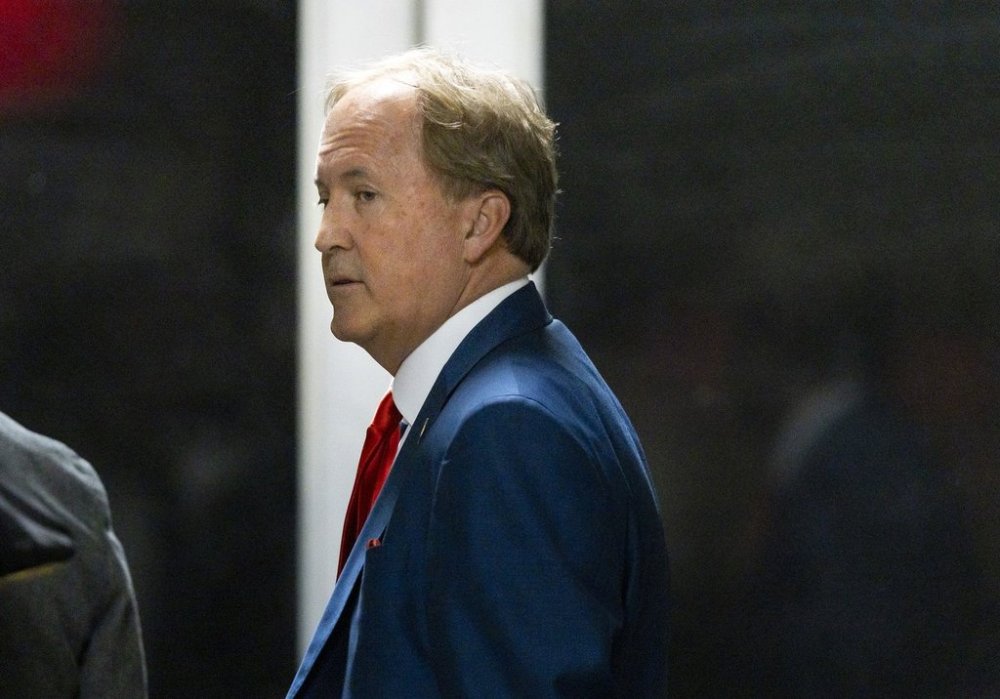Texas AG asks court to require NCAA to begin gender testing as part of new transgender policy
Advertisement
Read this article for free:
or
Already have an account? Log in here »
To continue reading, please subscribe:
Monthly Digital Subscription
$0 for the first 4 weeks*
- Enjoy unlimited reading on winnipegfreepress.com
- Read the E-Edition, our digital replica newspaper
- Access News Break, our award-winning app
- Play interactive puzzles
*No charge for 4 weeks then price increases to the regular rate of $19.00 plus GST every four weeks. Offer available to new and qualified returning subscribers only. Cancel any time.
Monthly Digital Subscription
$4.75/week*
- Enjoy unlimited reading on winnipegfreepress.com
- Read the E-Edition, our digital replica newspaper
- Access News Break, our award-winning app
- Play interactive puzzles
*Billed as $19 plus GST every four weeks. Cancel any time.
To continue reading, please subscribe:
Add Free Press access to your Brandon Sun subscription for only an additional
$1 for the first 4 weeks*
*Your next subscription payment will increase by $1.00 and you will be charged $16.99 plus GST for four weeks. After four weeks, your payment will increase to $23.99 plus GST every four weeks.
Read unlimited articles for free today:
or
Already have an account? Log in here »
Hey there, time traveller!
This article was published 20/02/2025 (289 days ago), so information in it may no longer be current.
LUBBOCK, Texas (AP) — The Republican attorney general in Texas wants the NCAA to take its transgender policy a step further and require gender testing for athletes who compete in women’s sports.
AG Ken Paxon filed a lawsuit in December in state district court and on Thursday added a filing that seeks a court order requiring gender screening for athletes and an injunction intended to prevent the NCAA from “falsely and deceptively claiming that only biological women may participate in female-specific competitions.”
Earlier this month, the NCAA changed its participation policy for transgender athletes, limiting competition in women’s sports to athletes who were assigned female at birth. The move came a day after President Donald Trump signed an executive order intended to ban transgender athletes from women’s and girls’ sports.

Paxton doesn’t think the NCAA move goes far enough because, saying the NCAA has no mechanism for screening the sex of athletes.
“In practice, the NCAA’s lack of sex-screening has allowed (and will continue to allow) biological men to surreptitiously participate in ‘women’s’ sports categories,” the lawsuit claims.
Over the past year, transgender athletes have become a target of critics who say their participation in women’s sports is unfair and a potential safety risk. The topic became a major talking point in Trump’s re-election campaign even though there is believed to be a very small number of transgender athletes; NCAA President Charlie Baker in December said he knew of only 10 transgender athletes out of more than 500,000 across the NCAA.
The NCAA’s revised policy permits athletes assigned male at birth to practice with women’s teams and receive benefits such as medical care. An athlete assigned female at birth who has begun hormone therapy can practice with a women’s team but cannot compete on a women’s team without risking the team’s eligibility for championships.
Paxton also said the NCAA has left “ample opportunity for biological men to alter their birth records and participate in women’s sports,” a claim the organization said is not true.
“The policy is clear that there are no waivers available, and student-athlete assigned male at birth may not compete on a women’s team with amended birth certificates or other forms of ID,” the NCAA said in an emailed response to The Associated Press.
Member schools — there are 1,100 in the NCAA — are responsible for certifying athlete eligibility for practice and competition. Local, state and federal legislation can supersede NCAA rules.
Paxton’s filing refers to last week’s announcement by World Athletics that part of its new recommneded guidelines would bring back gender testing, a practice that hasn’t been part of track and field since the 1990s. Most of the screenings can be done by swabbing the inside of an athlete’s cheek.
—-
AP sports: https://apnews.com/sports

